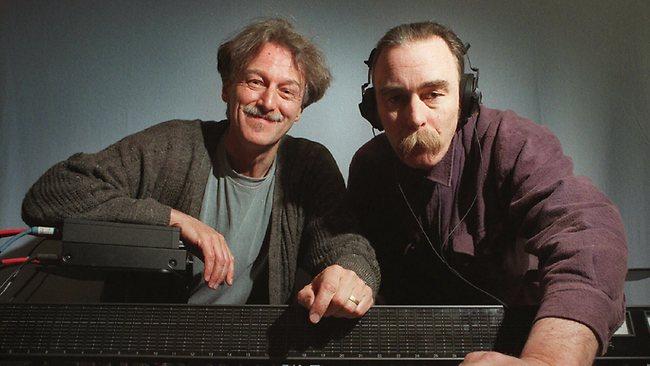Blues-rock pioneer covered the full Spectrum
MORE than 40 years ago, guitarist and singer Mike Rudd was forming a band and needed a drummer.

MORE than 40 years ago, guitarist and singer Mike Rudd was forming a band and needed a drummer. He found one in brilliant young player Mark Kennedy. But Kennedy came as a package with bass player Bill Putt.
Mike found not only his drummer but, in Bill, a best friend and lifelong musical compadre. Bill, a gifted multi-instrumentalist, would work closely with his new mate as they launched themselves on a musical adventure into territory uncharted then and seldom sailed now.
Bill had been part of two Melbourne bands, Gallery and the Lost Souls, but popular music was moving quickly, and the in-form players were keen to move with it.
In 1969 Mike and Bill added Lee Neale on organ and became Spectrum, a progressive blues-rock outfit that would soon top Australia's music charts.
Bill Putt's death last week after suffering a heart attack while chopping wood at Strathewen, in the hills north of Melbourne, where he had lived for some years, brought to an end a remarkable partnership. The long and winding road for Mike and Bill -- they were never Rudd and Putt -- started with quite a bang, the remarkable chart-topper I'll Be Gone.
Something magical happened the day Mike picked up his harmonica and blew two penetrating notes -- F sharp sliding up to A.
Every Australian knows what follows. They are some of the most familiar notes and words ever written in this country.
When Spectrum's I'll Be Gone climbed to the top of the charts in April 1971, it looked down on a musical landscape dominated by shallow copies of British and American acts; of pale pop and hackneyed heroes.
All that just changed. Mike and Bill helped do that. It was an era when Australian artists' own songs seldom became hits, and rarely bested the rest.
I'll Be Gone became a revered Australian standard and has been covered by many including Manfred Mann, the Bushwackers, Margaret Roadknight, Colleen Hewitt and John Williamson.
Within weeks of its success, Mike's former bandmates Ross Wilson and Ross Hannaford reached No 1 as Daddy Cool with the song Eagle Rock and a golden era of Australian rock was born.
Mike and Bill, who was 66, stayed together forming the risk-taking bands Indelible Murtceps and Ariel, whose Jamaican Farewell was 1973's single of the year, and recorded at London's fabled Abbey Road Studios.
All three bands performed at the Sunbury rock festivals.
They were musical adventurers who confounded record companies and managers over the years as they navigated an unpredictable course through blues, rock and, sometimes, even pop.
So unconventional were Mike and Bill that they withheld their biggest hit song from their first album lest the band's prog credentials come into question, although the 2007 CD release of Spectrum Part One did carry I'll Be Gone as a bonus track. They preferred music that was awkward to market; funny shaped pegs for which they had yet to manufacture any holes.
Perhaps their supreme achievement was the dreamily psychedelic, sometimes even ambient, Living On a Volcano album credited to Mike Rudd and Bill Putt and on which they both played acoustic guitars. It was recorded at a time that Mike's wife, Helen, was ill. "Bill's dedication to our friendship shone through. He turned up every day as we worked our way through those recordings," Mike said last night. Helen died soon after.
Spectrum completed recording a blues album six weeks ago. The band last performed in Melbourne's Dandenong Ranges a fortnight back.
Mike spoke fondly of his long-time friend yesterday: "Despite his stature and fierce moustache he was a really lovely person.
"He loved children and he loved animals."
Bill and his partner, Rosemary McKimmie Young, almost lost their lives in the Black Saturday fires that destroyed 80 houses and killed 23 of their neighbours in February 2009. Bill's pumps failed and his hoses burnt along with all but one bucket. He used it to put out spot fires and save his house, although he lost a studio and several outbuildings. That bucket, grossly deformed by the intense radiant heat, forms part of Museum Victoria's Victorian Bushfire Collection.
As is a piece of music he reconfigured to mark all that was lost that dreadful day.


